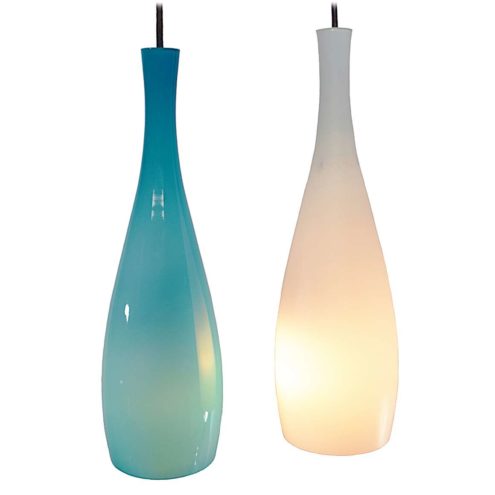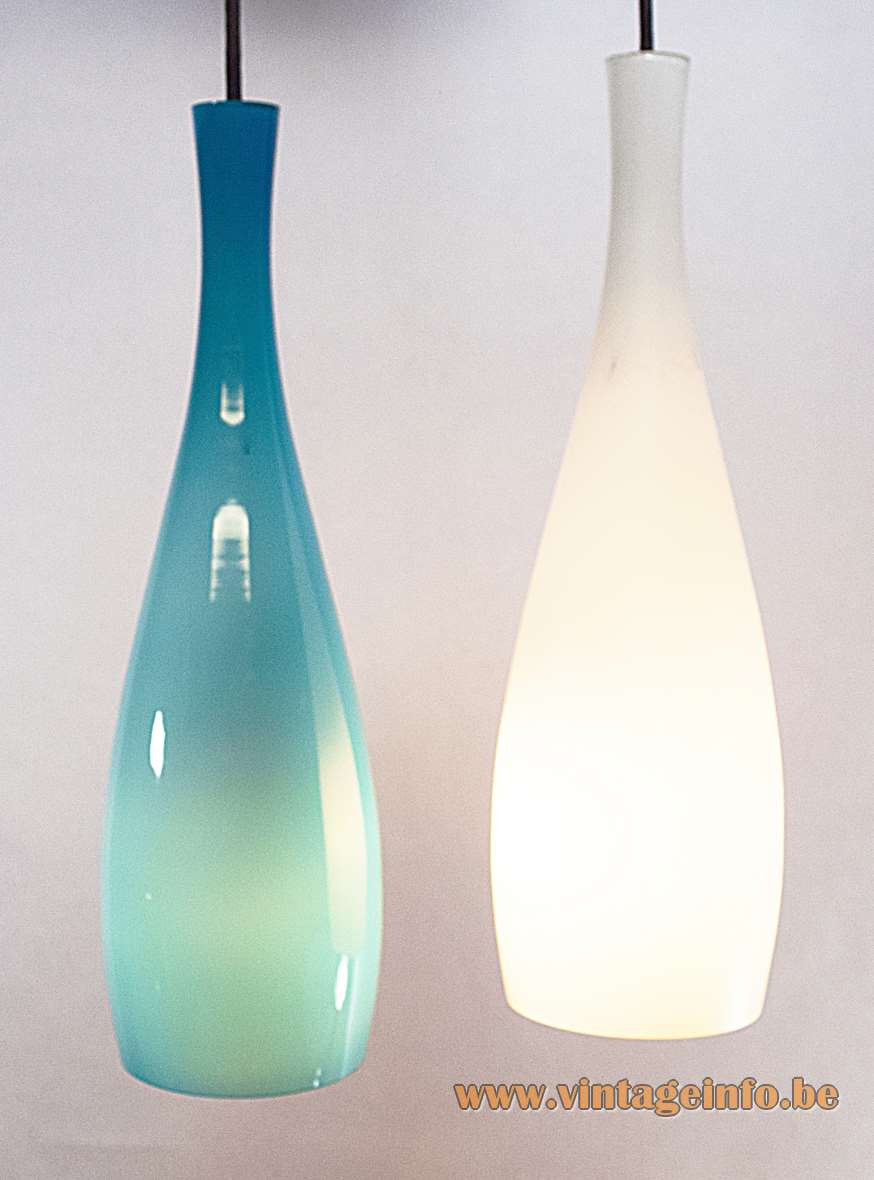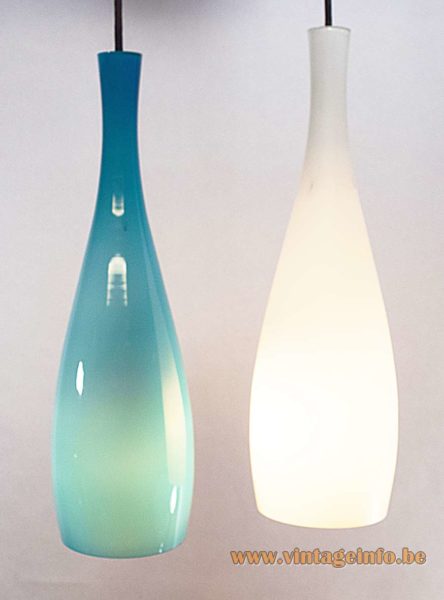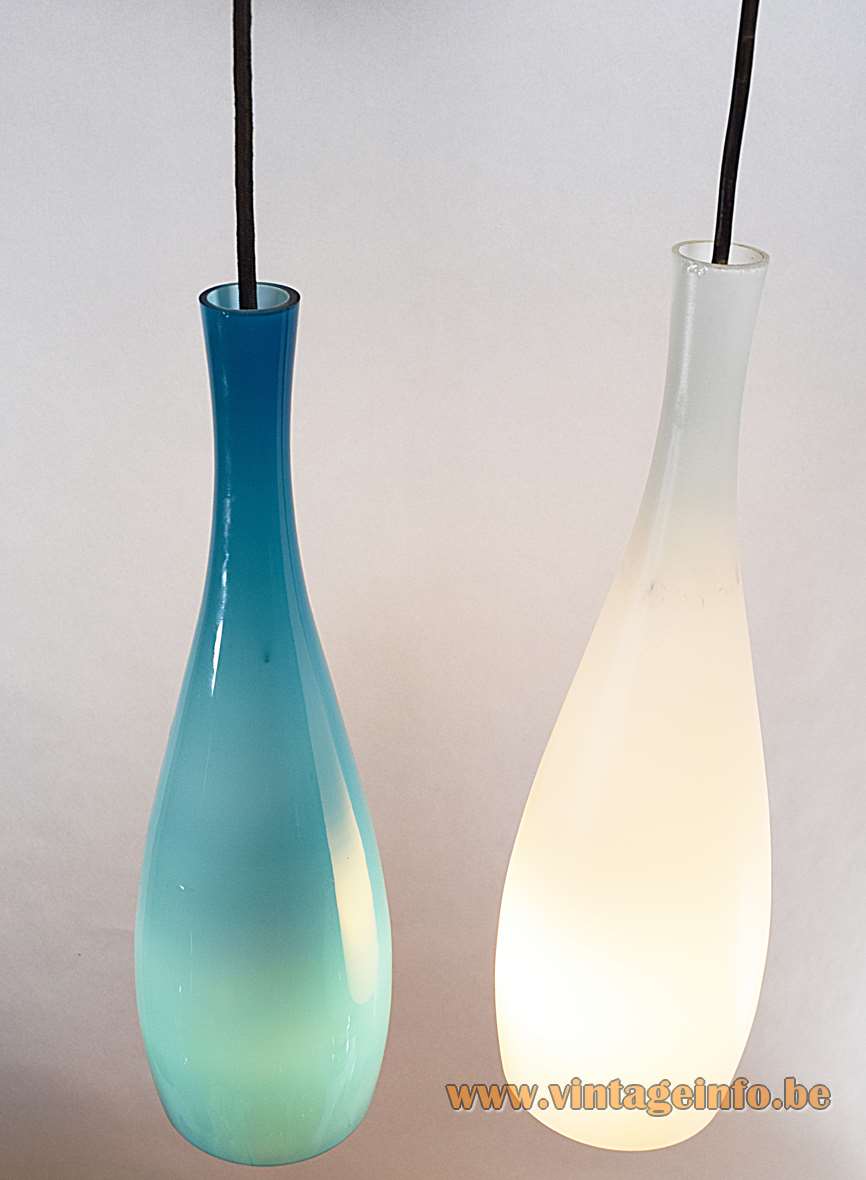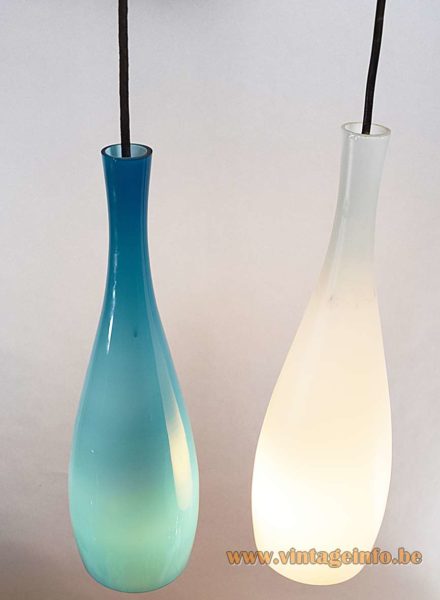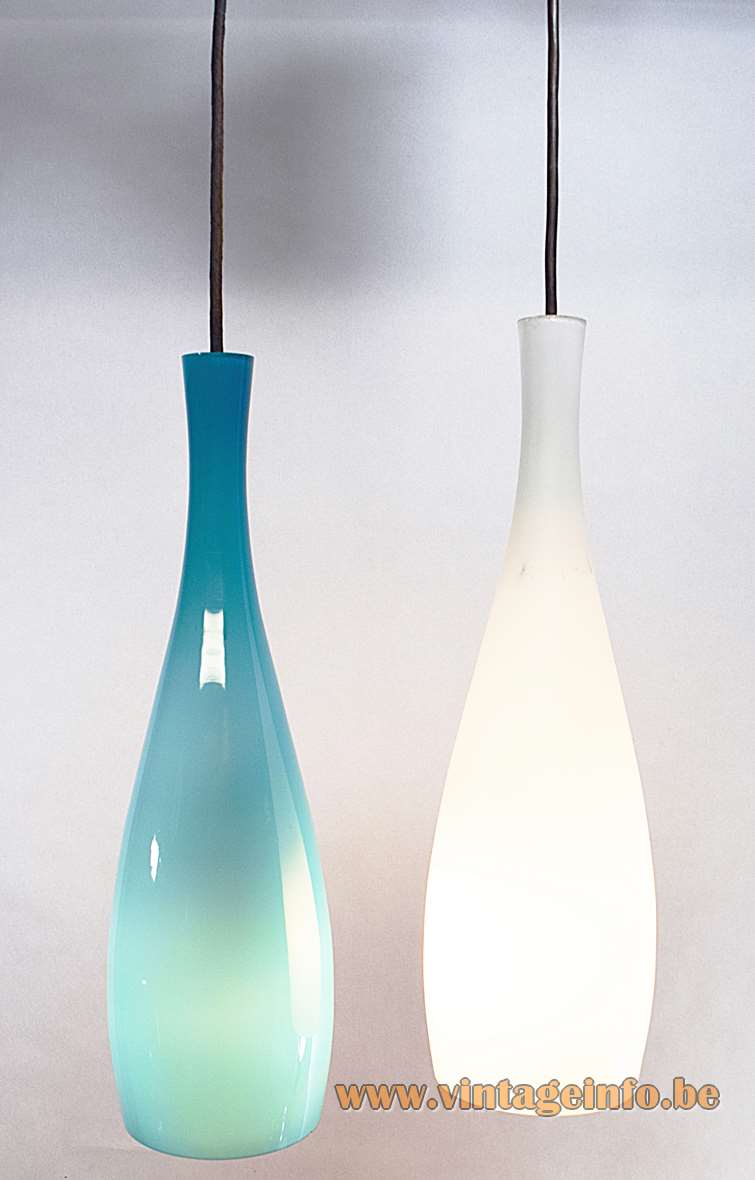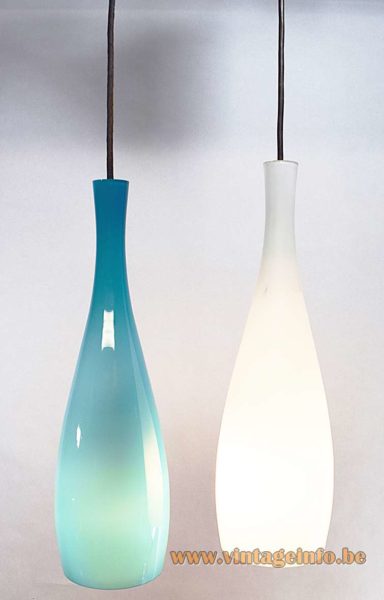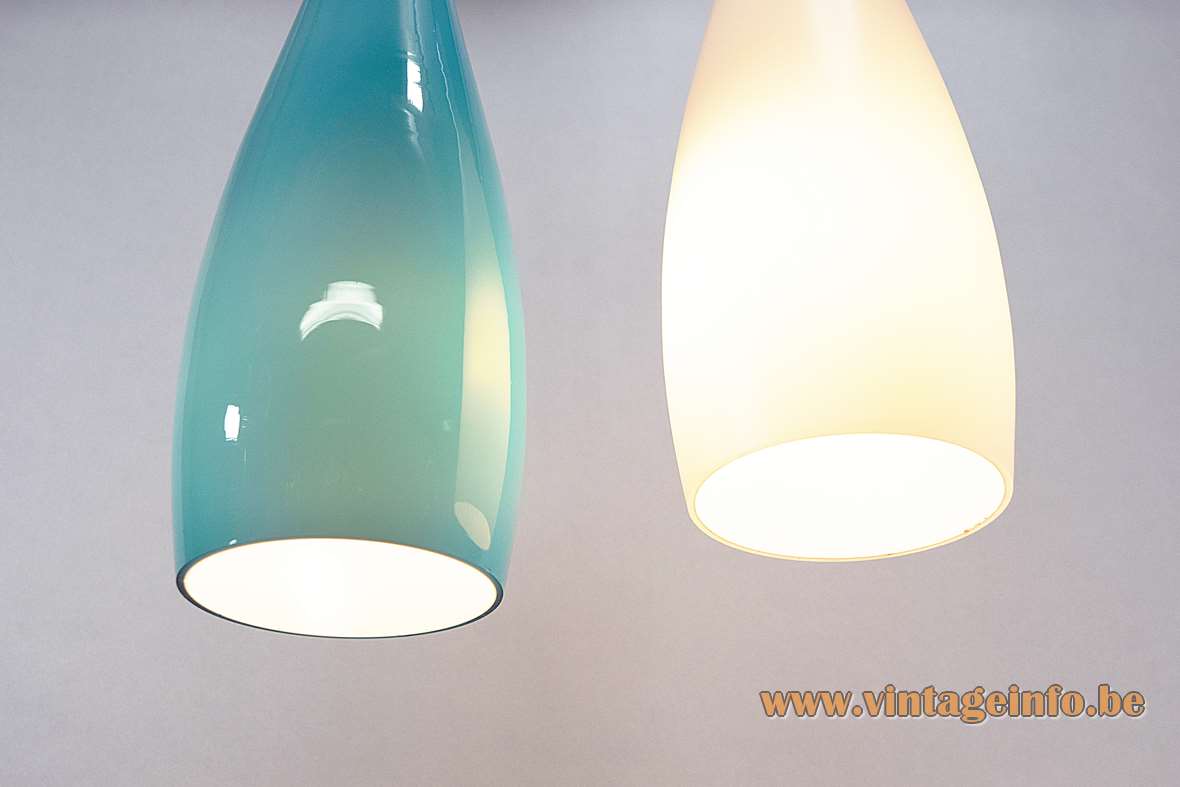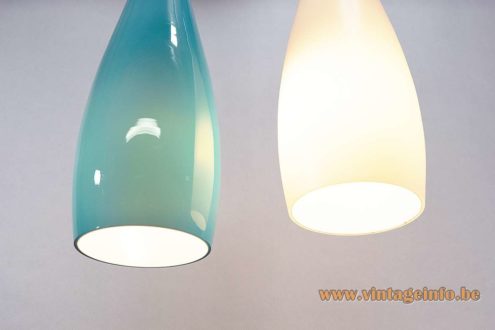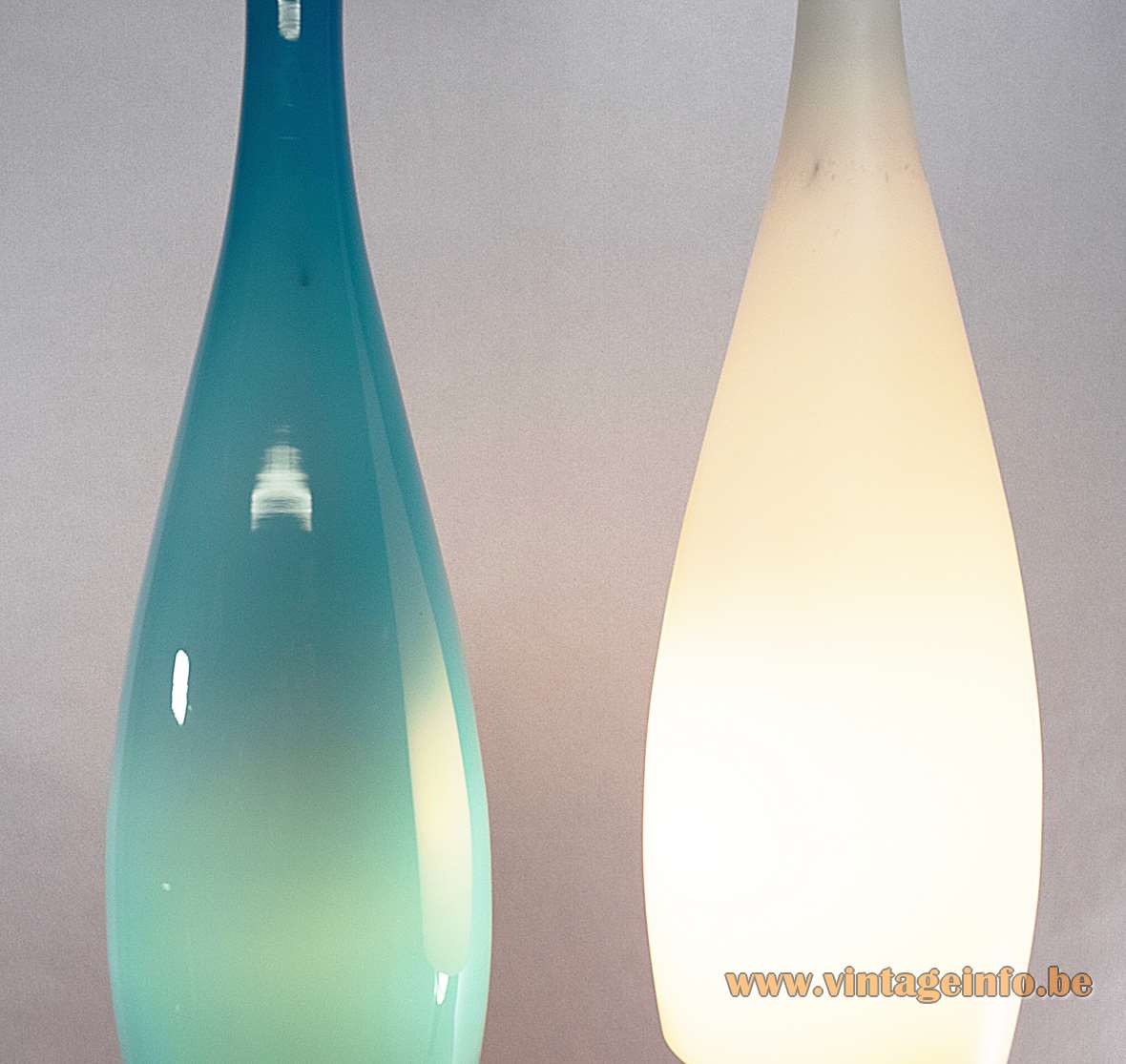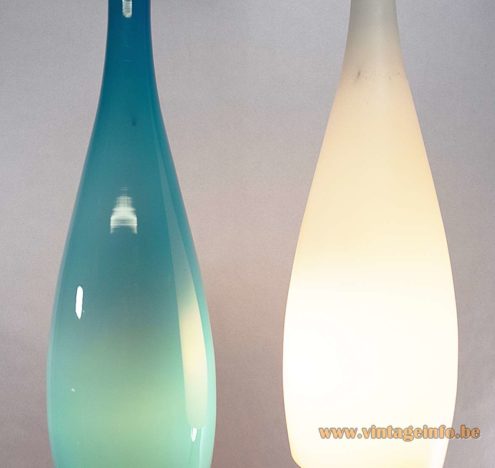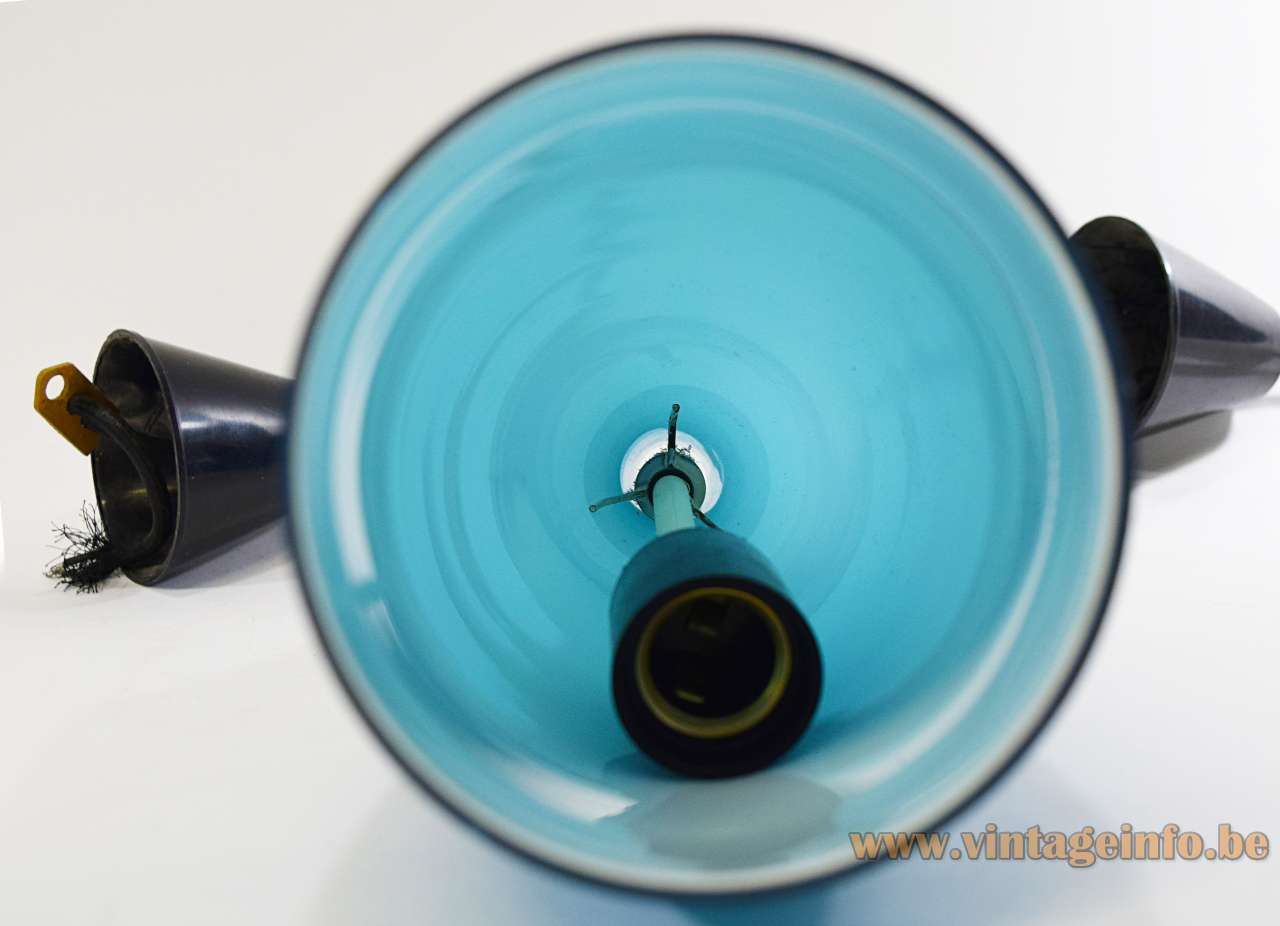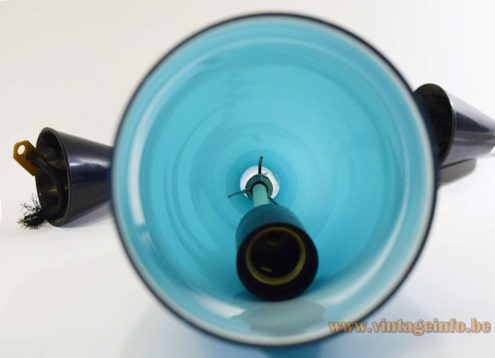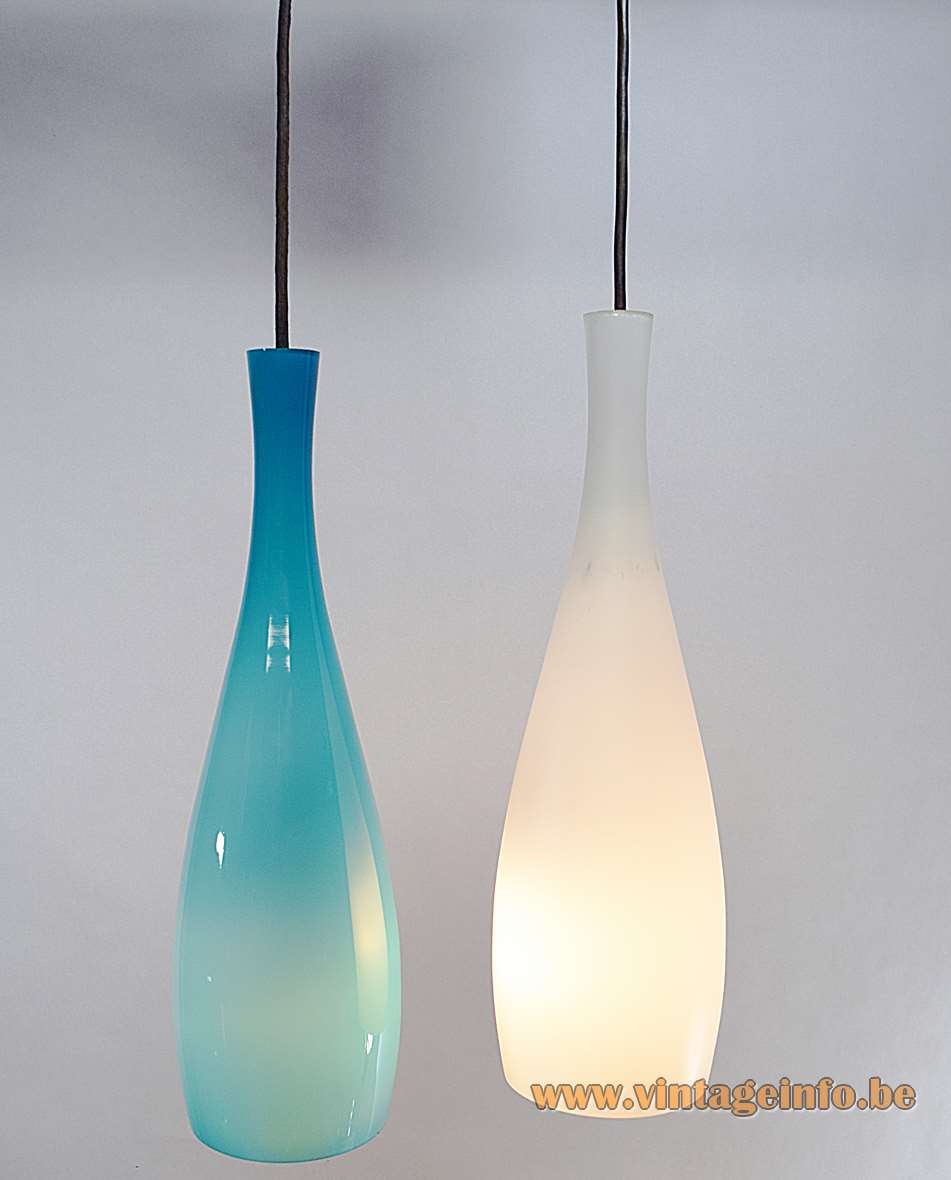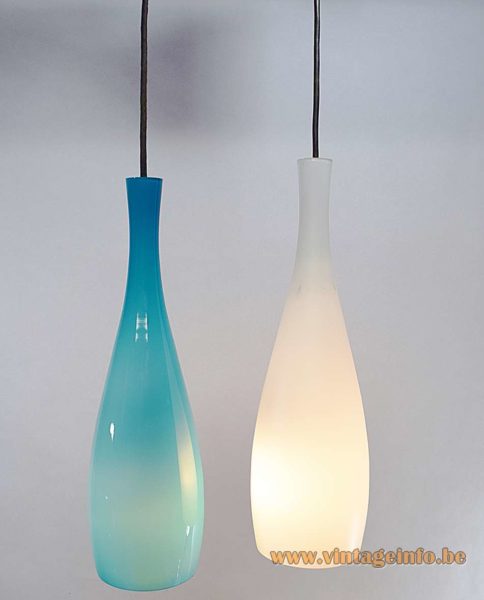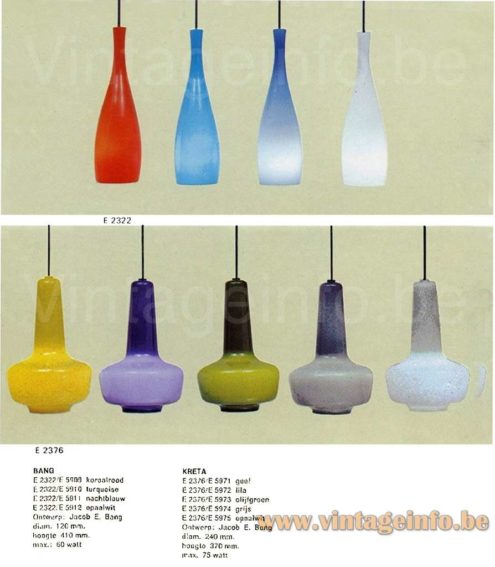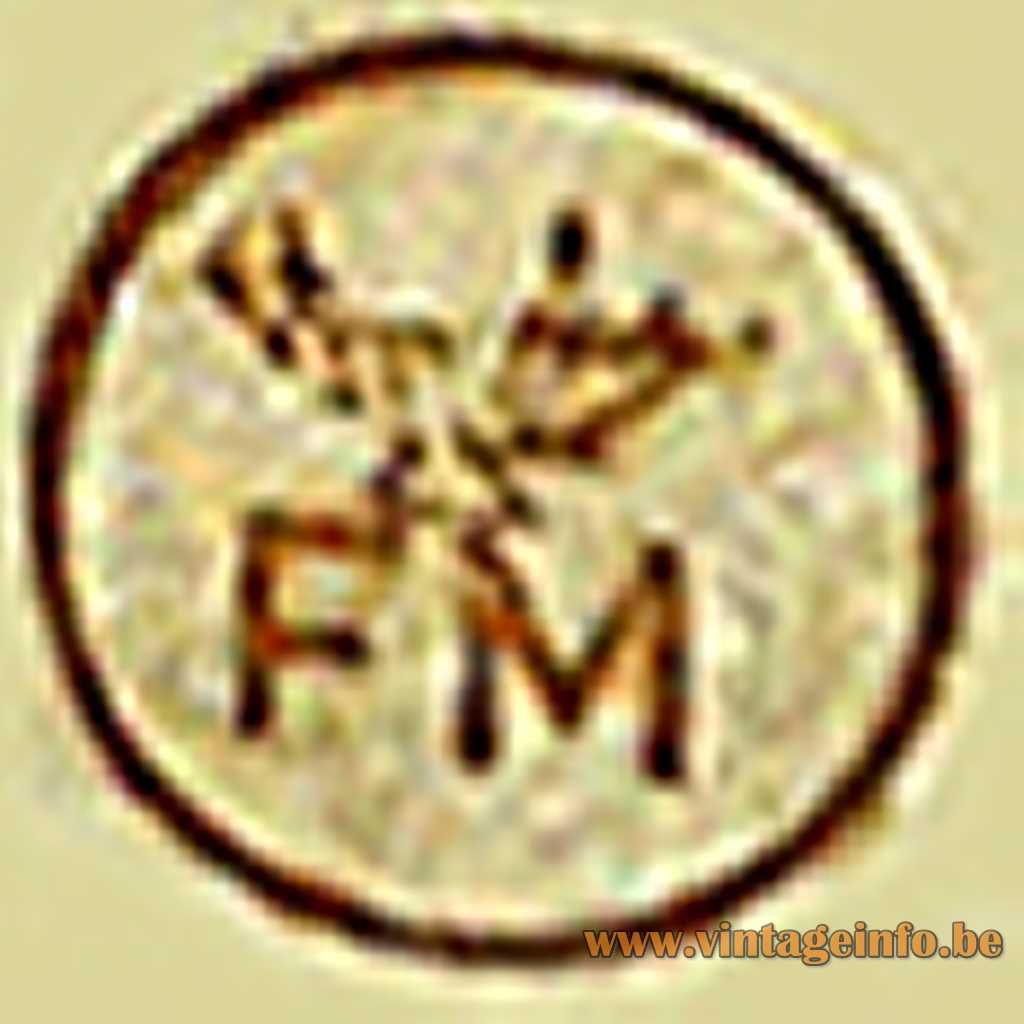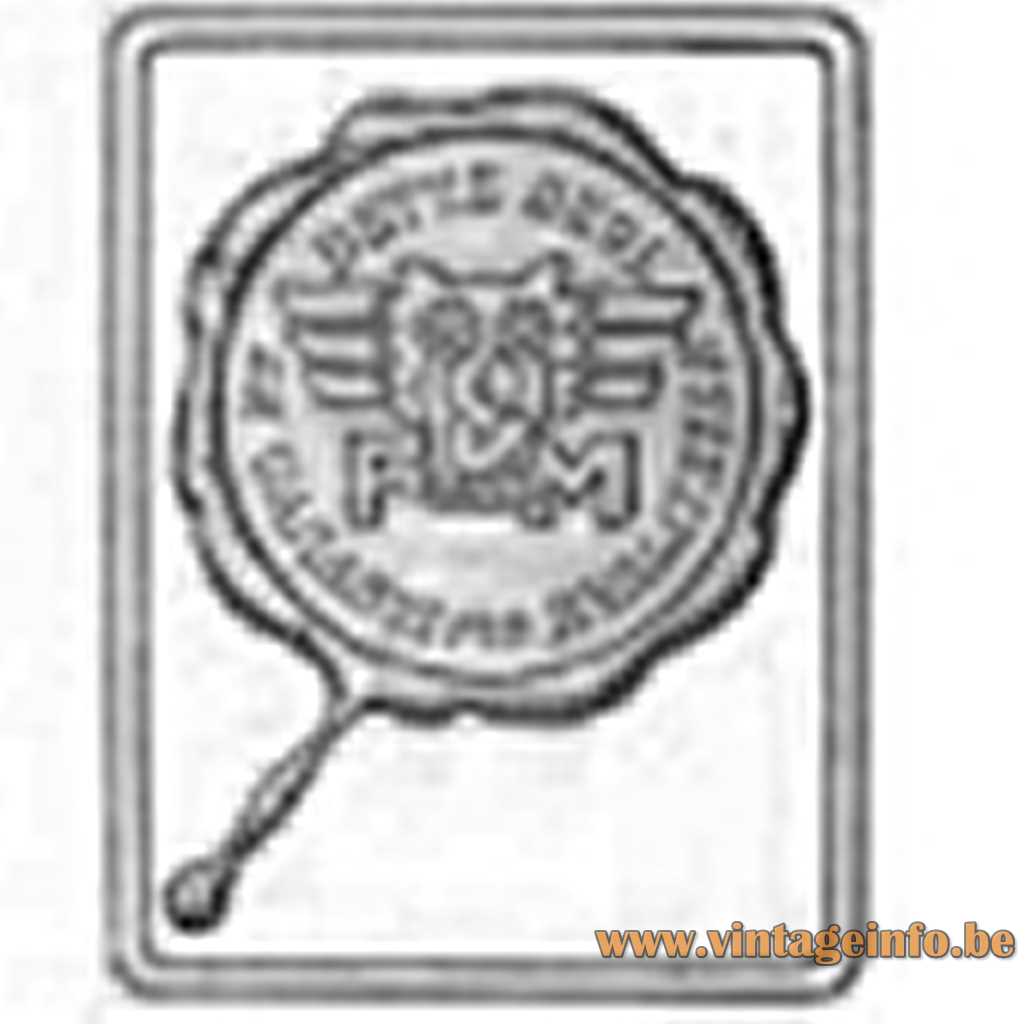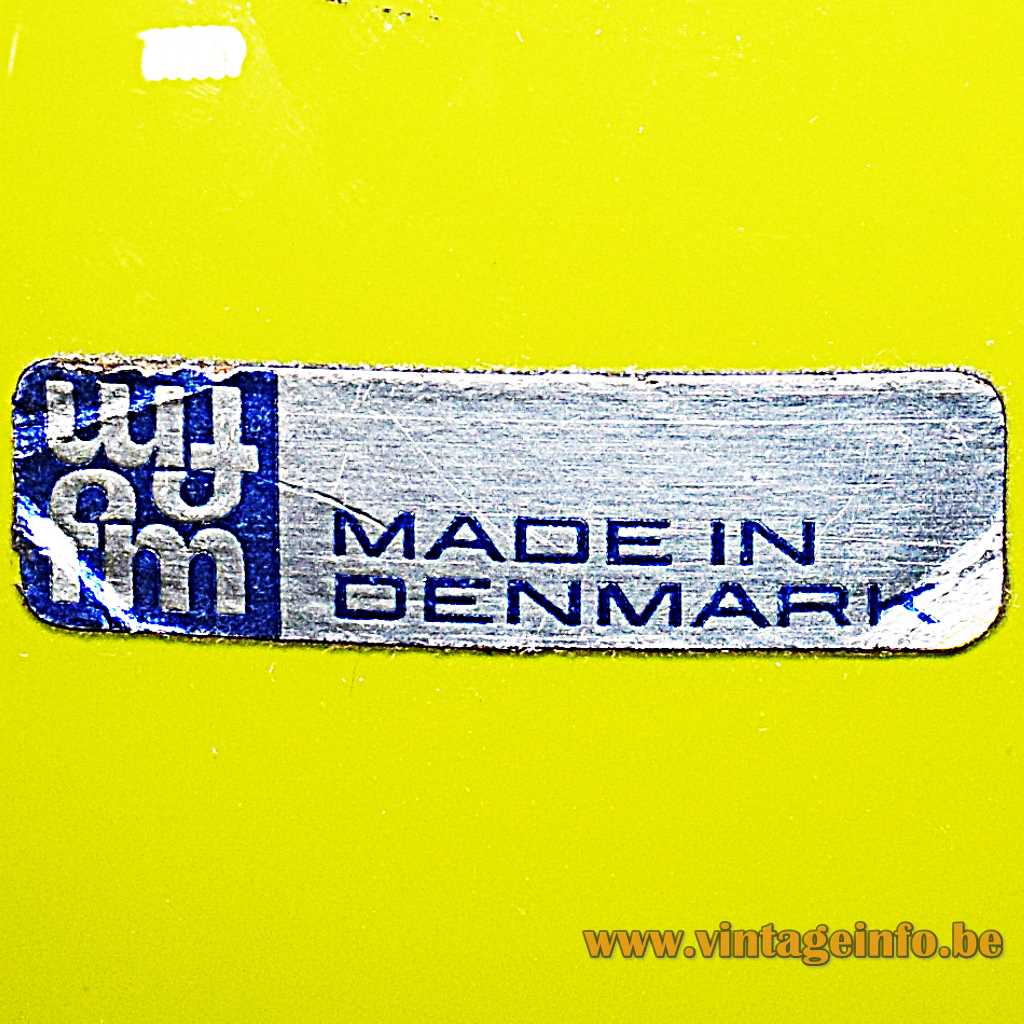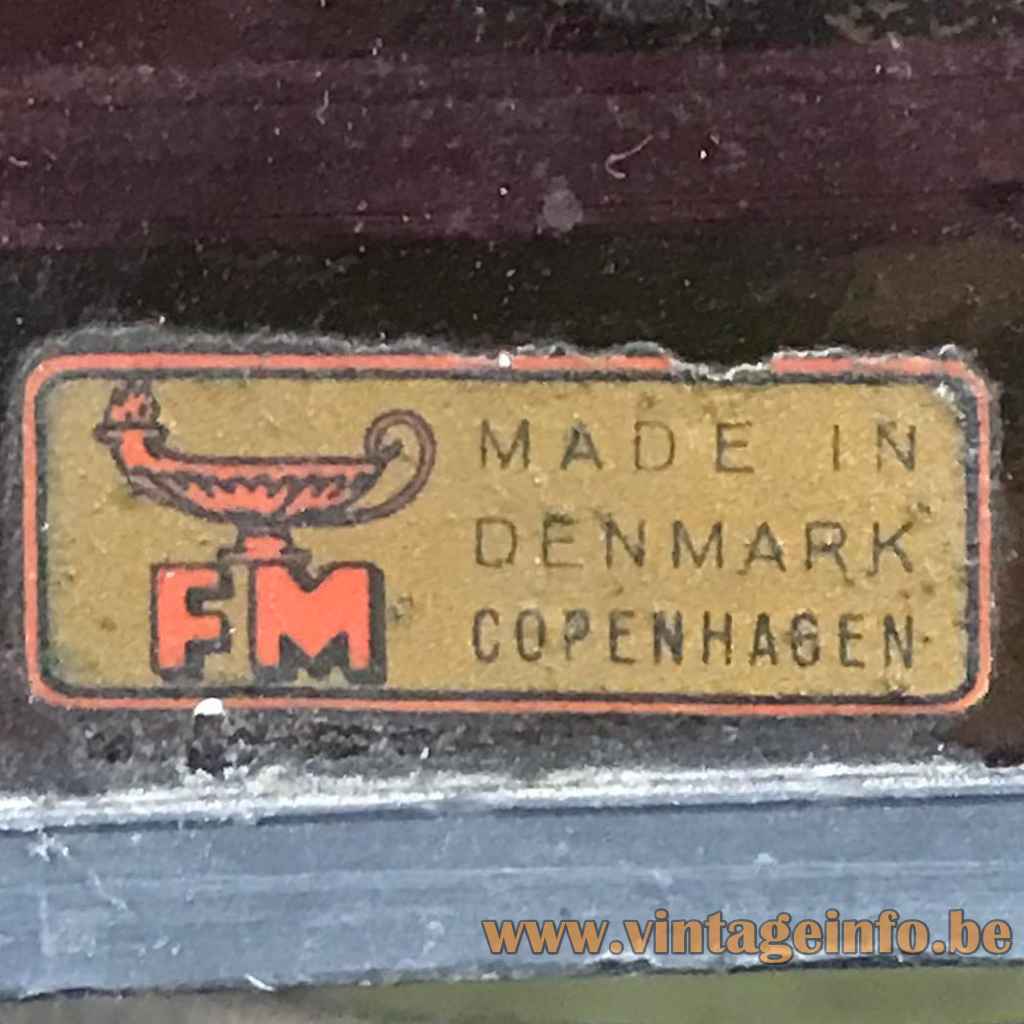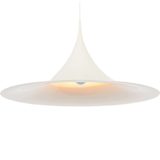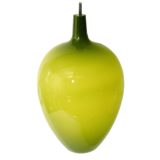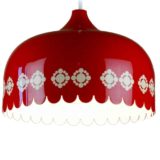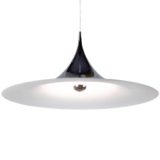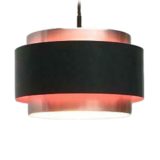Fog & Mørup Bang Pendant Lamp – 1960s Catalogue Picture
Links (external links open in a new window)
Jacob Eiler Bang bio on Fjørn Scandinavian
The story of Fog & Mørup, Danish modern lighting’s superstar
Lightyears – Republic of Fritz Hansen
Horn Belysnign history on Danish Vintage Design
Fog & Mørup Bang Pendant Lamp
Materials: Droplet style convex lampshades. Made of clear turquoise and opal crystal hand-blown glass. White opal glass on the inside (incamiciato). Bakelite E27 sockets.
Cord Length: 60 cm / 23.62’’
Height: 41 cm / 16.14”
Width: ∅ 12 cm / 4.72”
Electricity: 1 bulb E27, 1 x 60 watt maximum, 110/220 volt.
Any type of light bulb can be used. But preferably a white/opaque or frosted bulb.
Period: 1960s – Mid-Century Modern.
Designer: Jacob Eiler Bang (1899 – 1965).
Manufacturer: Fog & Mørup A/S with Kastrup Glasværk, Denmark.
Other versions: This Fog & Mørup Bang pendant lamp comes in several colours, as you can see. The first colours were turquoise, opaque, coral and night blue.
Similar, almost identical lamps were made by Base from Murano, Italy in the same period.
Incamiciato: overlay lattimo glass (= milky looking glass) with a layer of transparent coloured glass. It’s an Italian word. The technique was invented on the Murano Island of Venice.
These pendant lamps were designed by Jacob Eiler Bang in 1963 for Fog & Mørup. It was a few years before his dead. Not only are they designed by Jacob Bang, it is also their name: Bang.
Kastrup Glasværk, another Danish company specialised in glass objects, produced the glass for this Fog & Mørup pendant lamps.
Jacob Eiler Bang
Jacob Eiler Bang was born in Fredriksberg, Denmark on 19 December 1899 and studied architecture. He changed quickly to glass design. He first came to the attention of Holmegaards Glasværk at the 1925 Paris exhibition and started working for Holmegaard in 1926. His glass designs received significant acclaim at international exhibitions.
Jacob Eiler Bang designed many lamps for Holmegaard and Fog & Morup.
Jacob Bang passed away at March 16, 1965 in Kongens Lyngby, also in Denmark, only 66 years old.
Fog & Mørup
Ansgar Fog (1880-1930) and Erik Mørup (1879-1972) started their business together in 1904 as a metalwork wholesaler. Two years later they moved to the capital Copenhagen and began to focus on lighting production and over the years taking over several electrical and lighting companies. It was only in the early 1960s that Fog & Mørup really emerged as a key force in lighting design, following the company’s appointment in 1957 of Jo Hammerborg as head of design.
Important designers and architects that worked for the company are: Claus Bonderup, Torsten Thorup, Sidse Werner. Sophus Frandsen, Jørgen Bo, E. Balslev, Peter Avondoglio,. Karen Clemmensen, Ebbe Clemmensen,Hans Due and of course Jo Hammerborg himself.
Lyfa
In the late 1970s Fog & Mørup merged with Lyfa, another leading Danish lighting producer. In 1980 Jo Hammerborg retired. A few years later Lyfa-Fog & Mørup was taken over by Lyskær. The name changed to Lyskaer-Lyfa.
Lyskaer-Lyfa produced lights until 1991, when it was incorporated into Horn Belysning A/S from Aalstrup, also in Denmark, which was itself taken over in 2005 by Nordlux from Ålborg and at a large extent dismantled.
Horn Belysning
The Horn Belysning A/S company was founded in 1952 as a family business and was first named E.S. Horn. In 1963 it changed into Horn Belysning – Horn Lighting.
The companyproduced lights for IKEA and several other European retail chains. They designed lights but also imported lights from China. In the 1980s Horn was the second biggest light company in Denmark.
In 2005 the name changed into Lightyears, today owned by Republic of Fritz Hansen.
